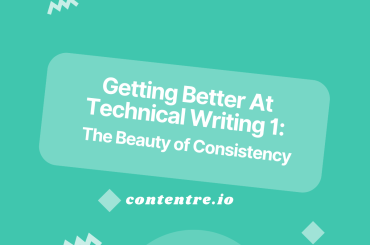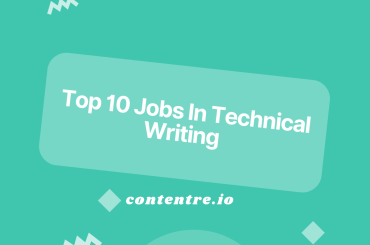Top 14 Profitable Technical Writing Niches show you different technical content you can produce as a technical writer.
Technical writing is aimed at audiences understanding how to use products. Every technical content targets a specific group of people.
This article is part of our Technical Writing Series, you can read the previous series before you jump to this one.
- What is Technical Writing?: We explored technical writing in-depth and get you started creating your first technical content.
- Who is a Technical Writer?: We explore who a technical writer is, the different types of technical writers, and the different skillset required to become a technical writer.
- Types of Technical Writing: We broke down technical writing into 3 broad types and discuss in detail these different types and how to choose a specific category.
- Technical Writing Niches: We explored the different technical writing niches or types of technical content you can specialize in as a technical writer and produce.
- The Technical Writing Process: We will explore the lean technical writing process that will help you create high-quality technical content consistently.
- How to Become a Good Technical Writer? We discussed the factors you need to make you stand out and become a good technical writer.
In this series, we will explore the different technical writing niches or types of technical content you can specialize in as a technical writer and produce.
Top Technical Writing Niches
User Guides
This is an instructional manual that directs the user on how to use and interact with a product. It details a step-by-step approach to how to use a particular product. This document is usually added to newly purchased items
For online software, it is safe to say that the “Get Started” section of the documentation is the User Guide.
API Documentation
It is a document or a webpage that demonstrates how to interact, integrate or use the public API of a particular software product.
It shows tutorials, code snippets, references, classes, methods, format rules, and amongst others strict rules on how to use the public API. This document is a developer’s guide to interacting with an API. API Documentation helps to;
- Improves API versioning
- Increases API usage
- Provide a great user experience
Here is an ultimate guide to creating your first API Reference Guide.
SDK Documentation (Software Development Kit)
Companies develop Software Development Kits to aid developers to get started with building and interacting with their APIs easily. This type of documentation includes creating instructional content on how to use the SDK.
It contains FAQs, library instructions, code snippets, and guides to using and working with the SDKs.
jordan 4 reps
rep jordan 4
jordan 4 reps cheap
jordan 4 fake
fake yeezy slides
yeezy slide reps
rep yeezy slides
yeezy slides reps
yeezy slides rep
yeezy slide rep
reps shoes
rep sneakers
yeezy reps
cheap yeezy
yeezy 350 reps
cheap yeezy 350
fake foam runners
yeezy foam runner reps
rep foam runners
Project Plans
Project managers use these documents in project control and execution. It documents the stages involved in project management such as initiation, planning, execution, control, and conclusion.
This document helps project managers and stakeholders to;
- Track progress
- Improves project
- Provides structure and foresight
White Paper
A whitepaper is a written report to inform the user of a problem and a valid solution to the problem.
In a white paper, there are convincing facts and evidence of the problem and the solution. It’s used by companies, technical fields, governments, and businesses to provide a clear solution to a problem.
A White paper helps to;
- Improve sales
- Increase engagement
- Establish expertise
Onboarding guides
This is a document that lists the required steps a new user needs to get familiar with a product.
It explains and how shows how a product works, the necessary stages users should know and the steps to take.
In most cases, the onboarding content trains the user, impacts their experiences, gives them insights into how to make the most use of the product, and guides them between basic and complex parts of the products.
Howto guides and Technical Blogpost
The aim of this informative technical content is to teach users a particular subject or process. It shows a step-by-step guide to achieving a particular thing.
Freelance technical writers create technical blogpost or how-to guides to demonstrate how to use a particular technology or tool.
They are step-by-step tasks and expository pieces. An example of How to guide is a repair manual. It gives quick fixes and “Do it yourself” tasks.
Here is a guide to learning how to create Howto guides.
RFPS & Proposals
This document describes the entirety of the project and requests alternative solutions.
It discloses an intended project and requests funding. RFP focuses on investors, benefactors, and interested third parties.
Case Studies
They are expository writings and an in-depth study of a subject. They generalize over every unit of a subject matter. A fast piece to introduce products, and analyze a phenomenon, a person, or units of persons.
Standard Operating Procedures
Standard Operating Procedures (SOPs) are internal documents that aid employees in an organization to carry out their duties. It is calibre and ensures ease of work and success.
They contain descriptive policies, procedures, and standards for the organization
Test Schedules
This document is required in Agile methodologies, it includes test strategy, data requirements, and status of previous results.
It’s a detailed document consisting of the objectives, descriptions, and procedures of a product.
Product Requirement Documentation
This is one of the most important documents in software engineering, it outlines the requirement of a product. It shows the details of each feature and how they relate to other features in the product.
It describes the product, tools, features, and deliverables. It’s the product communication guide, outlining every detail and process of a product
Market Requirements Documentation
A document that reports the details of the market(users). It describes the need of users, target audiences, competitors, and market cap. Additionally, it takes precedence over product requirements. It aids business analysis.
MRD helps to:
- Understand trends and needs of users
- Reduces the risk of wasting resources
- Meet the needs of users
- Identify market opportunities
Release Note
This document encompasses every fix, upgrade, and process made to a product. It includes reports, product limitations, and upgraded features. Also, the software uses the versions for the product.
The release note also gives details of upgrades made to the product documentation.
A release note is released after product development. In some cases, it’s released during development and it’s called the “Beta Release”.
Summary
Technical writing niches show the type of technical content you can produce as a technical writer.
You can specialize in any particular type or learn how to produce content in any of the niches listed above.
Let me know your thought in the comment section
Contentre helps technical writers stay organized and gain more clients. Grow your technical writing career in one place.
Now that you’re here, let me briefly recap the most important features Contentre can offer you:
- Organize your content in categories, topics, and tags
- Create and manage multiple clients
- Create and manage multiple personalized portfolios
- Get statistical analytics of your content revenue, top categories, and tags.








9 Comments
Pingback: Who is a Technical Writer? How to become one (2022) - Contentre Blog
Pingback: What is Technical Writing? The Complete Guide (2022) - Contentre Blog
Pingback: Types of Technical Writing: How to Choose? (2022) - Contentre Blog
Pingback: BTS 5: From Struggling Developer to Technical Writing Wiz - Contentre Blog
Pingback: BTS 7: My technical writing journey from $2 to $200 - Contentre Blog
Pingback: How to Scaling Your Technical Writing Career - Contentre Blog
Pingback: Introducing TechPad 🥂 - Contentre Blog
Pingback: How to Write a Good “How-to” Guide (2023) - Contentre Blog
Pingback: The Technical Writing Process: How to Produce steady high-quality content (2023) - Contentre Blog